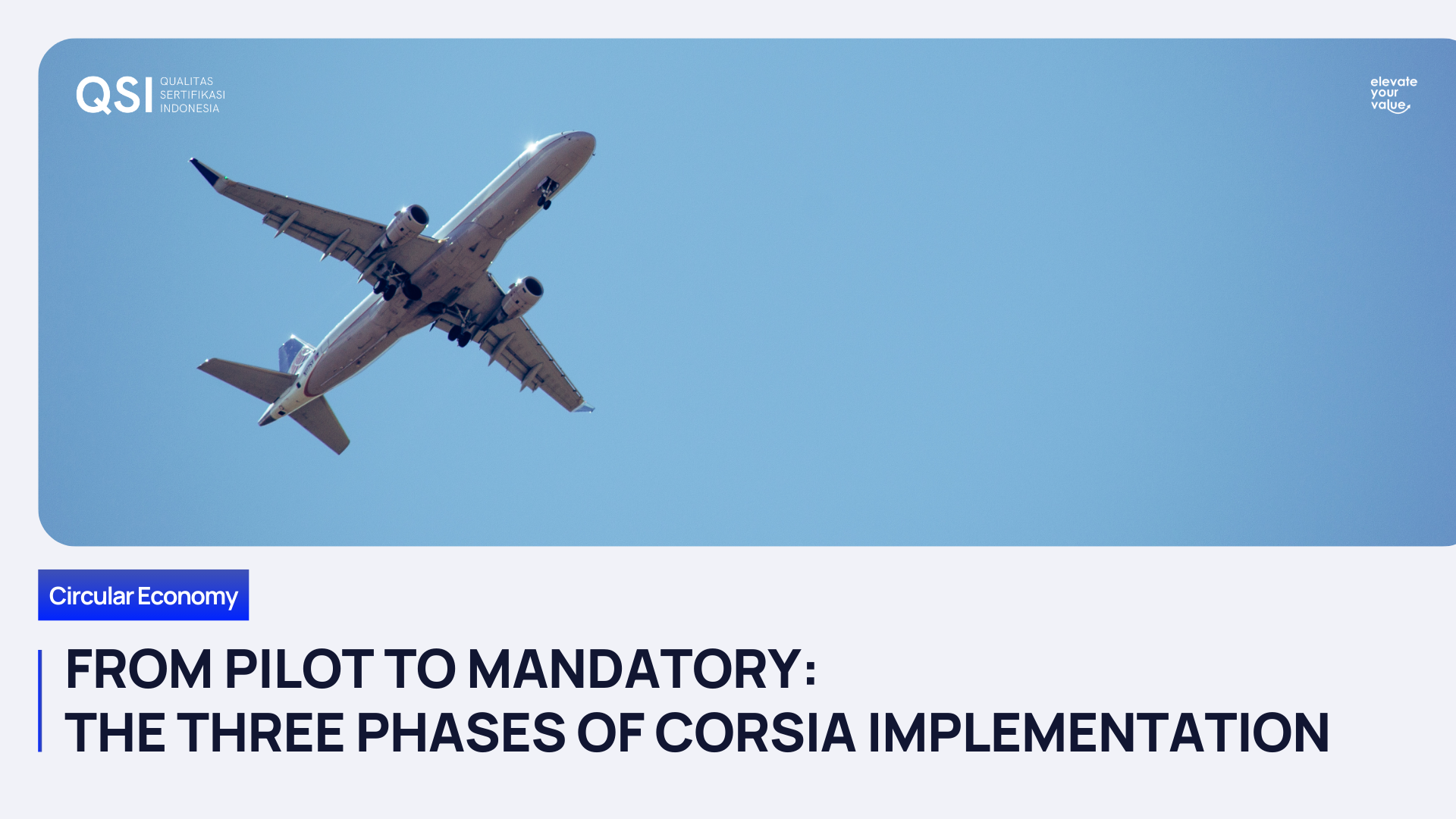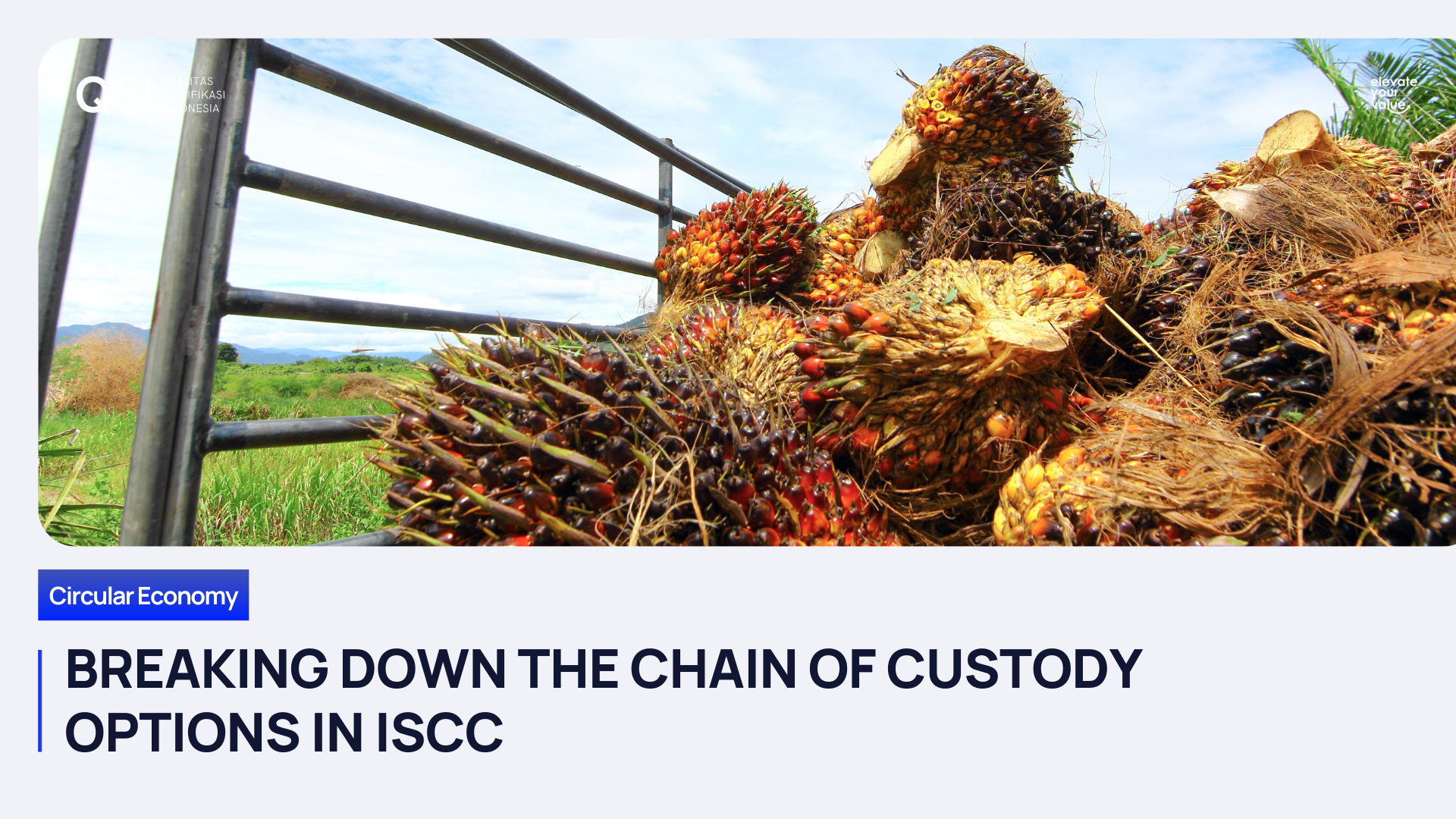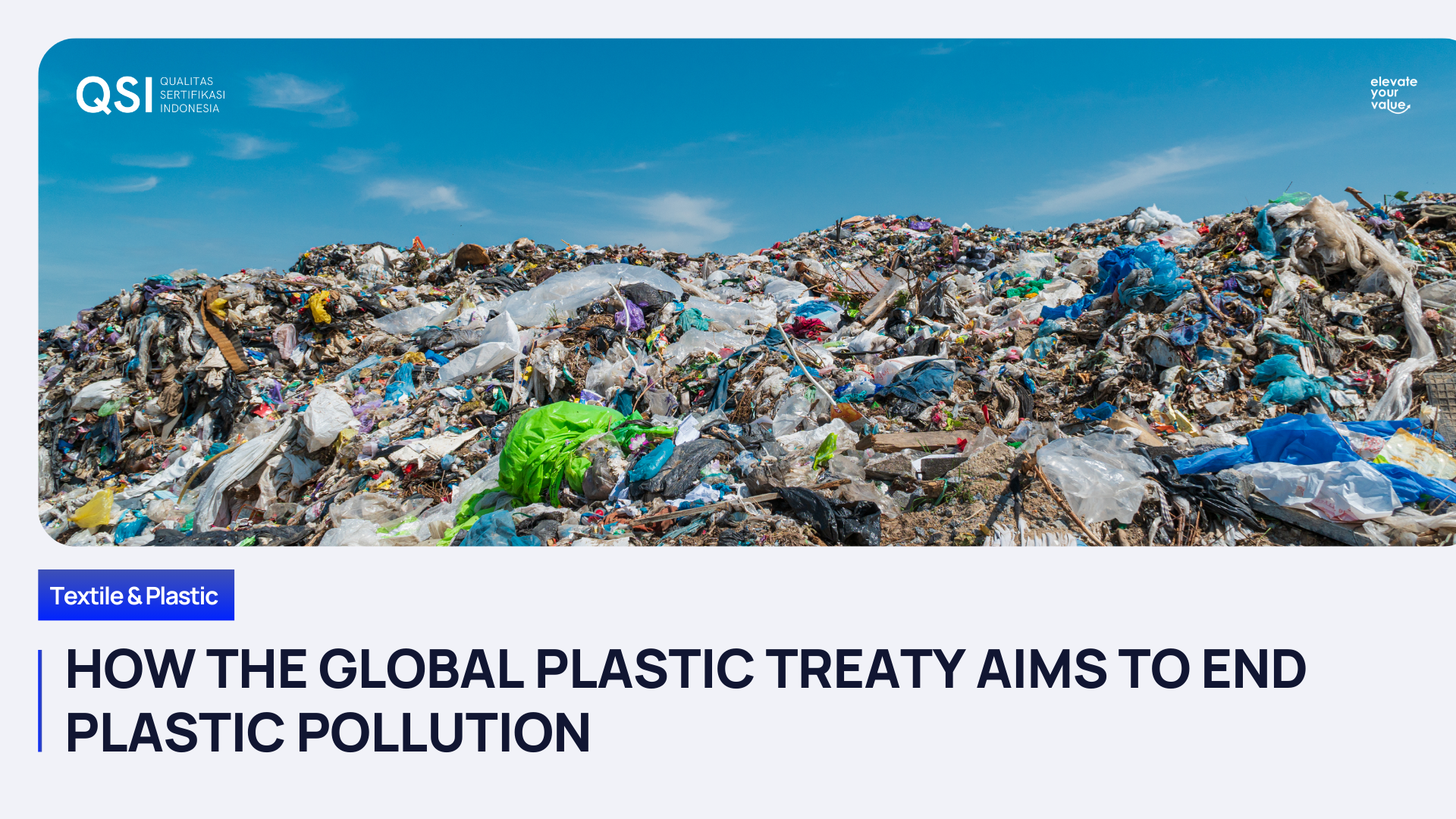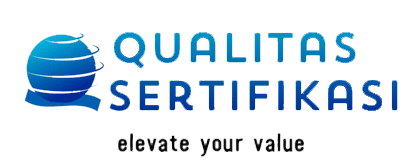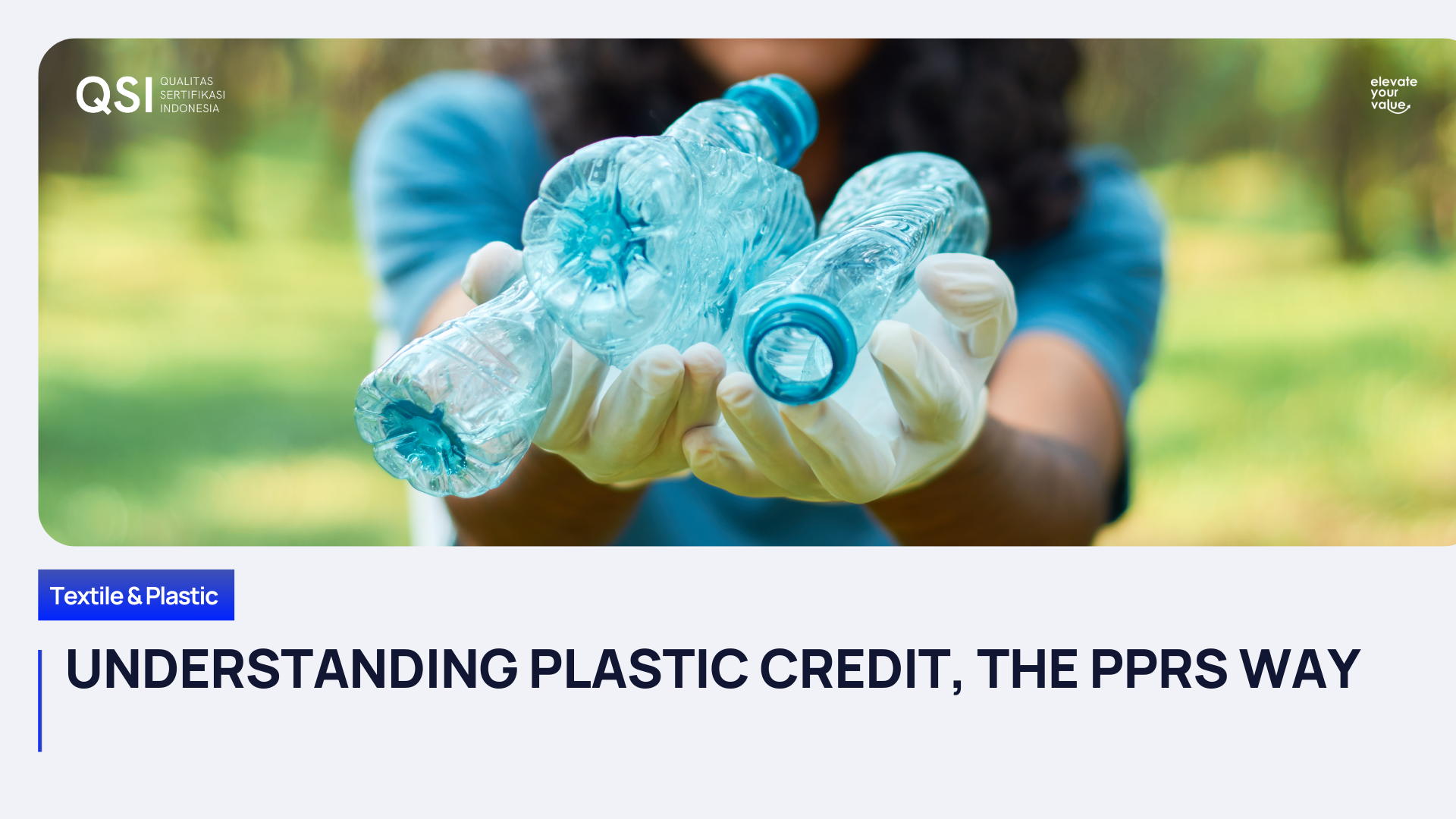Building a Sustainable Future, the ISCC Way
Welcome back, Qualizer! Remember how we cracked open the ocean bound plastic last time? It was awesome! Now, let's shift gears and delve into the captivating terrain of the ISCC. Get ready for a deep dive filled with fresh perspectives!
So, the world is facing unprecedented challenges such as climate change, biodiversity loss, resource depletion, and social inequality. To address these issues, we need to transform our economy and society in a way that is more sustainable, resilient, and inclusive. One of the key tools to achieve this is the International Sustainability and Carbon Certification (ISCC).
What is ISCC?
ISCC is a globally applicable sustainability certification system that covers all sustainable feedstocks, including agricultural and forestry biomass, bio-based and circular materials, and renewables. It is an independent multi-stakeholder initiative that aims to support sustainable, fully traceable, deforestation-free, and climate-friendly supply chains.
ISCC has developed a set of standards and criteria that ensure the protection of land with high biodiversity value and high carbon stock, the compliance with human, labor, and land rights, the implementation of good management practices, and the measurement and reduction of greenhouse gas emissions. ISCC also provides the methodology, rules, and guidelines for calculating and verifying greenhouse gas emissions and emission reductions.
ISCC is among the world’s largest certification systems, with over 9000 valid certificates in more than 130 countries. It is recognized by various regulatory frameworks, such as the European Union's Renewable Energy Directive (RED II).
Why is ISCC important?
ISCC is important because it helps to promote the transition to a circular economy and a sustainable bioeconomy. A circular economy is an economic system that aims to eliminate waste and keep resources in use for as long as possible, while minimizing the environmental impact and maximizing the social benefits. A sustainable bioeconomy is an economic system that uses renewable biological resources to produce food, feed, bio-based products, and bioenergy, while enhancing the health and well-being of people and the planet.
By applying the principles of the circular economy and the sustainable bioeconomy, ISCC can contribute to the following goals:
Reducing greenhouse gas emissions and mitigating climate change
ISCC can help to reduce the carbon footprint of various sectors, such as transport, industry, agriculture, and energy, by replacing fossil fuels and materials with low-carbon alternatives, such as biofuels, bioplastics, and biogas. ISCC can also help to enhance the carbon sequestration potential of land and forests, by preventing deforestation and promoting afforestation and reforestation.
Preserving natural resources and ecosystems
ISCC can help to conserve the natural capital and the ecosystem services that are essential for human well-being, such as water, soil, air, biodiversity, and climate regulation. ISCC can also help to reduce the pressure on land and water resources, by increasing the resource efficiency and productivity of agricultural and industrial processes, and by promoting the use of waste and residues as feedstocks.
Improving social and economic development
ISCC can help to create new markets and opportunities for sustainable and circular products and services, which can generate income, employment, and innovation. ISCC can also help to improve the livelihoods and the rights of the people involved in the supply chains, such as farmers, workers, and consumers, by ensuring fair and ethical practices, and by enhancing the quality and safety of the products.
ISCC Certification Schemes
Here, you can learn about four different schemes of ISCC that cater to different markets and products, such as biofuels, bio-based materials, aviation fuels, electricity from biomass, and many more. Each scheme has its own specific requirements and benefits, depending on the regulatory framework and the sustainability goals of the sector.
ISCC Japan FIT
This scheme is for sustainable electricity from biomass in Japan. It is recognized by the Japanese Ministry of Economy, Trade and Industry (METI) to certify compliance with the sustainability criteria of the Feed-in Tariff (FIT) scheme.
ISCC CORSIA
This scheme is for sustainable aviation fuels that are eligible for the Carbon Offsetting and Reduction Scheme for International Aviation (CORSIA). It is recognized by the International Civil Aviation Organization (ICAO) and covers the currently agreed on sustainability criteria under CORSIA.
ISCC EU
This scheme is for sustainable fuels used for transport, electricity, heating and cooling in the European Union. It is recognized by the European Commission to certify compliance with the sustainability and greenhouse gas saving criteria of the Renewable Energy Directive (RED II).
ISCC PLUS
This scheme is for bio-based or circular products, food and feed markets, as well as biofuels outside the European Union and the UK. It covers a more comprehensive set of sustainability criteria, including social and environmental aspects, such as workers’ rights, pesticide use, and deforestation-free supply chains.
How can you get involved with ISCC?
If you are interested in getting involved with ISCC, there are several ways you can do so:
- If you are a producer, processor, trader, or user of sustainable feedstocks, bio-based products, or renewables, you can apply for ISCC certification and demonstrate your commitment to sustainability and circularity.
- If you are a researcher, policy maker, or other stakeholder, you can join the ISCC association and participate in the development and governance of the ISCC system.
- If you are a consumer, you can look for the ISCC logo on the products you buy and support the companies that are certified by ISCC.
ISCC is more than just a certification system. It is a vision of a world where sustainability and circularity are the norm, not the exception. By certifying and promoting the best practices in the production and use of renewable resources, ISCC helps to create a positive impact on the planet and its people. Whether you are a producer, a consumer, or a stakeholder, you can join the ISCC community and contribute to this vision. ISCC is not only a powerful tool, but also a powerful movement.
The journey towards a sustainable future starts with you. Learn more about the ISCC by visiting our
website or
reaching out to us. Our team is here to guide you through the process and answer any questions you may have!
Recent posts
Drop us a line
Contact Us
Share
